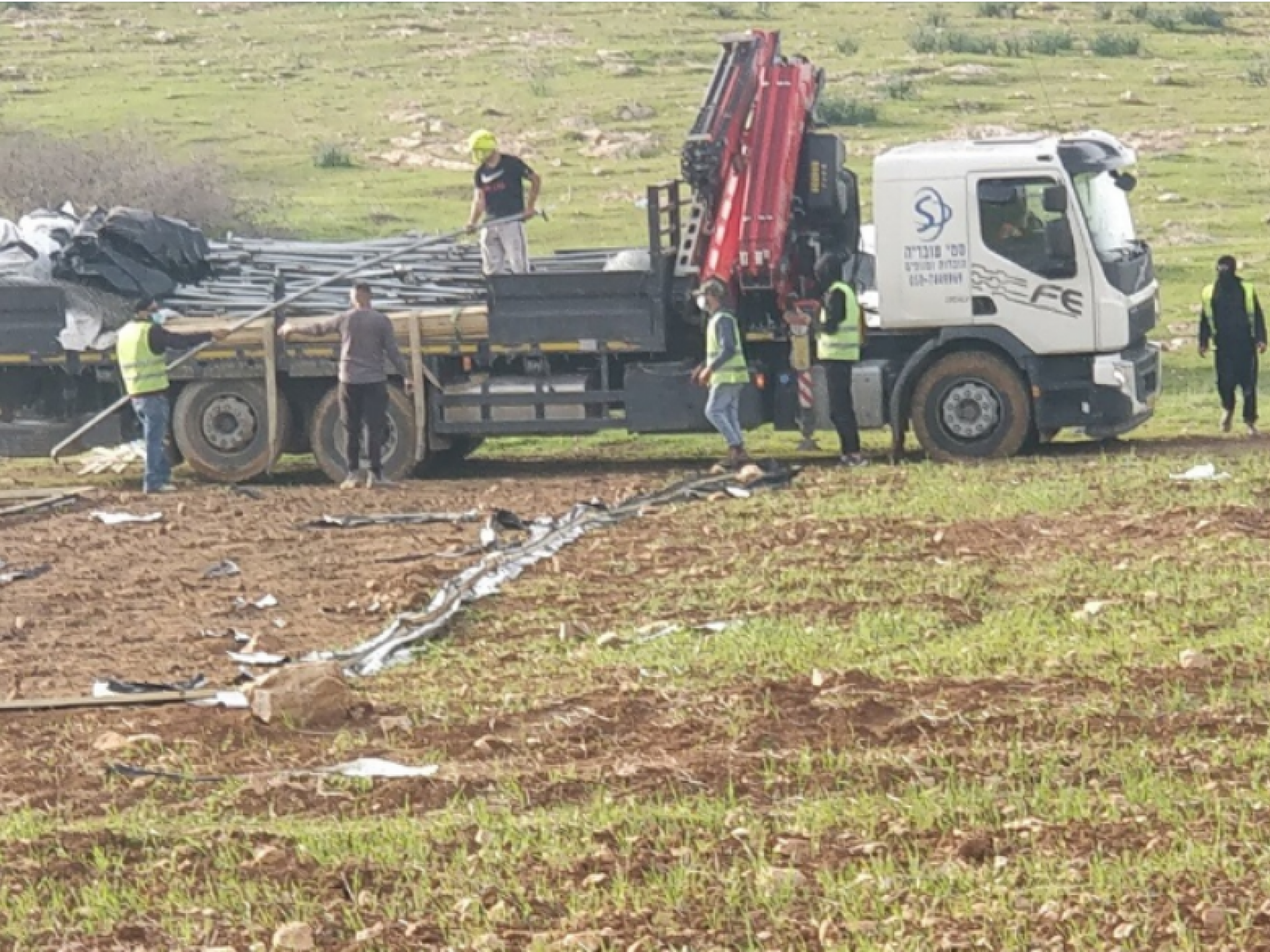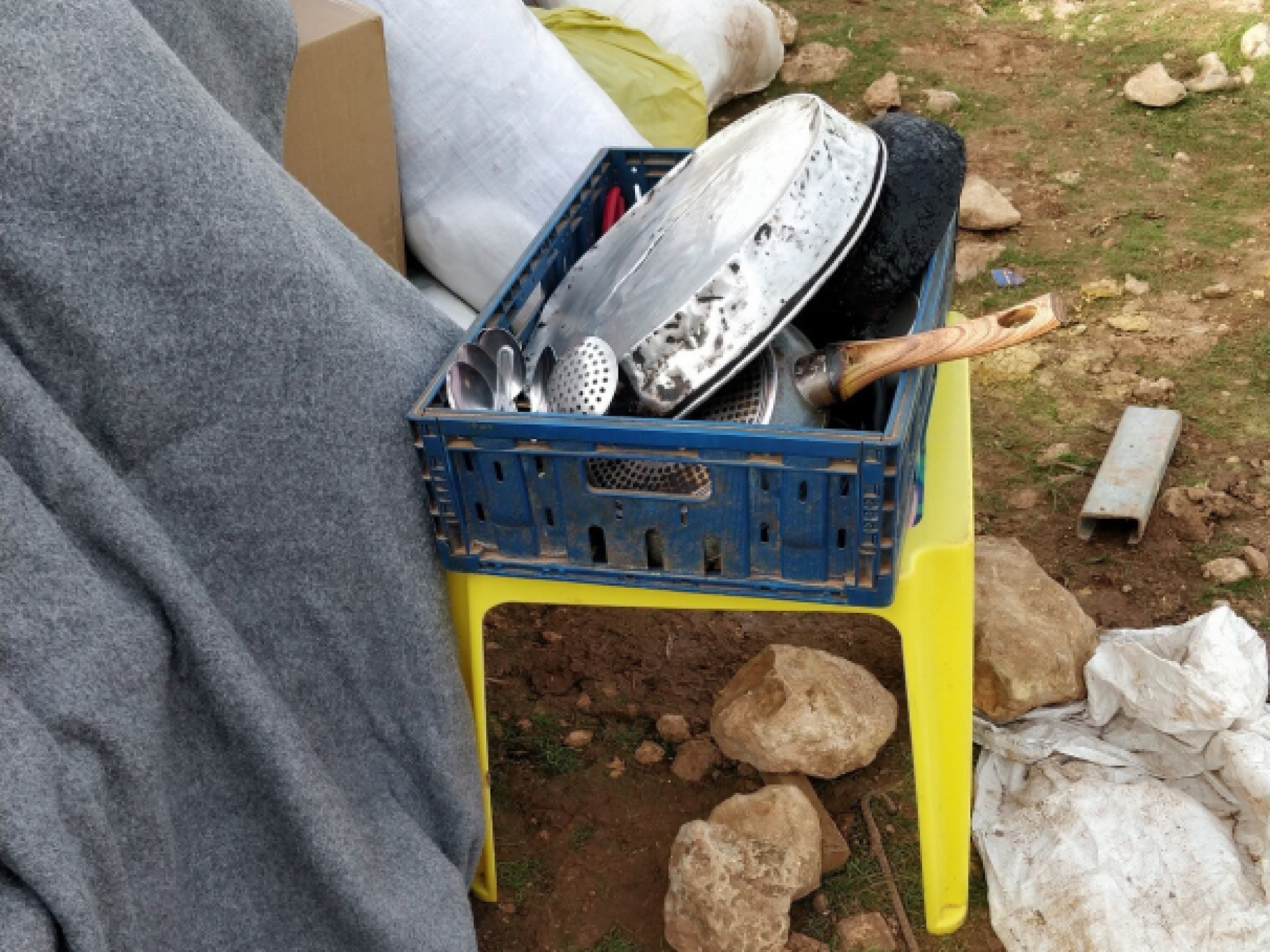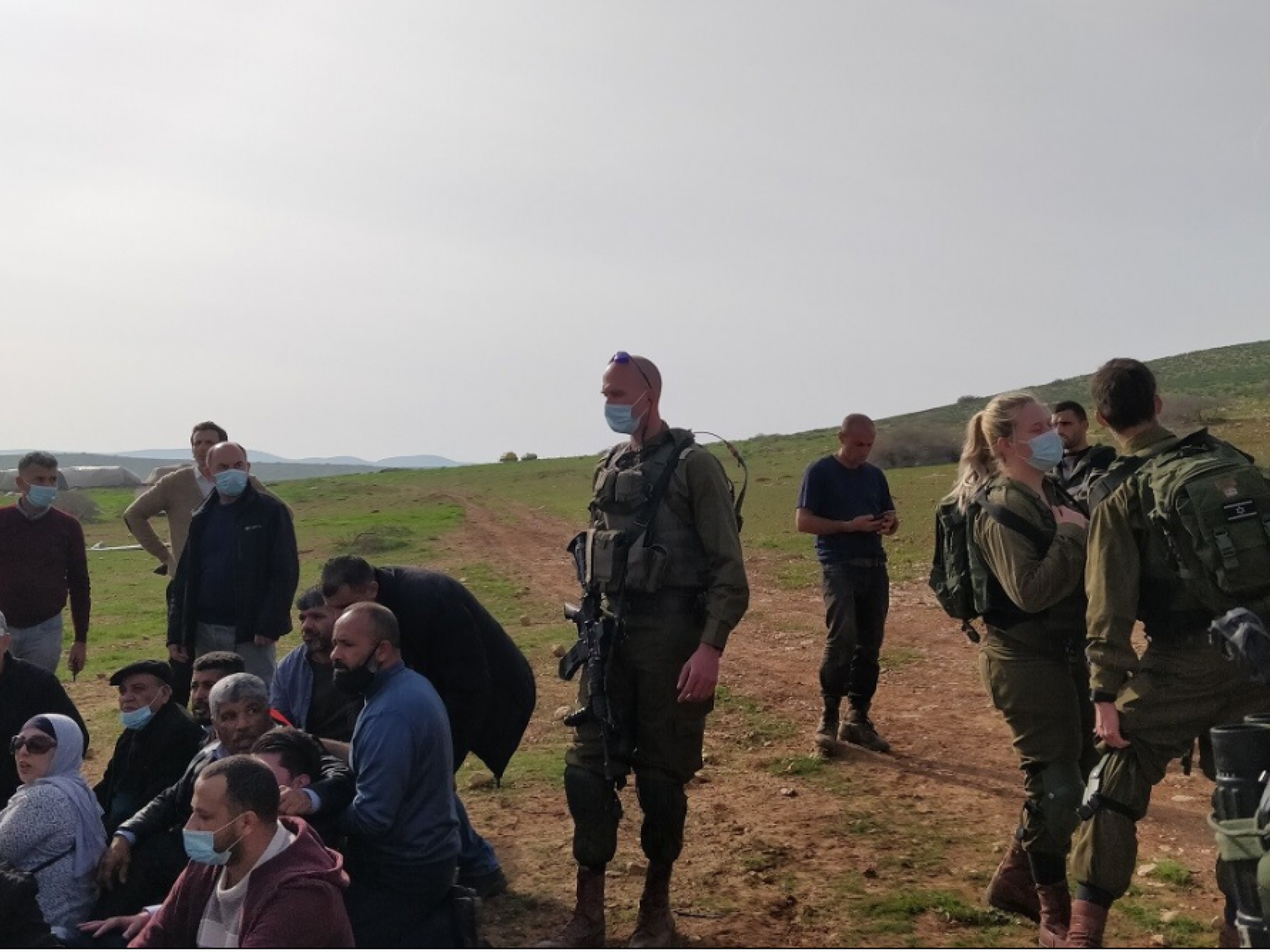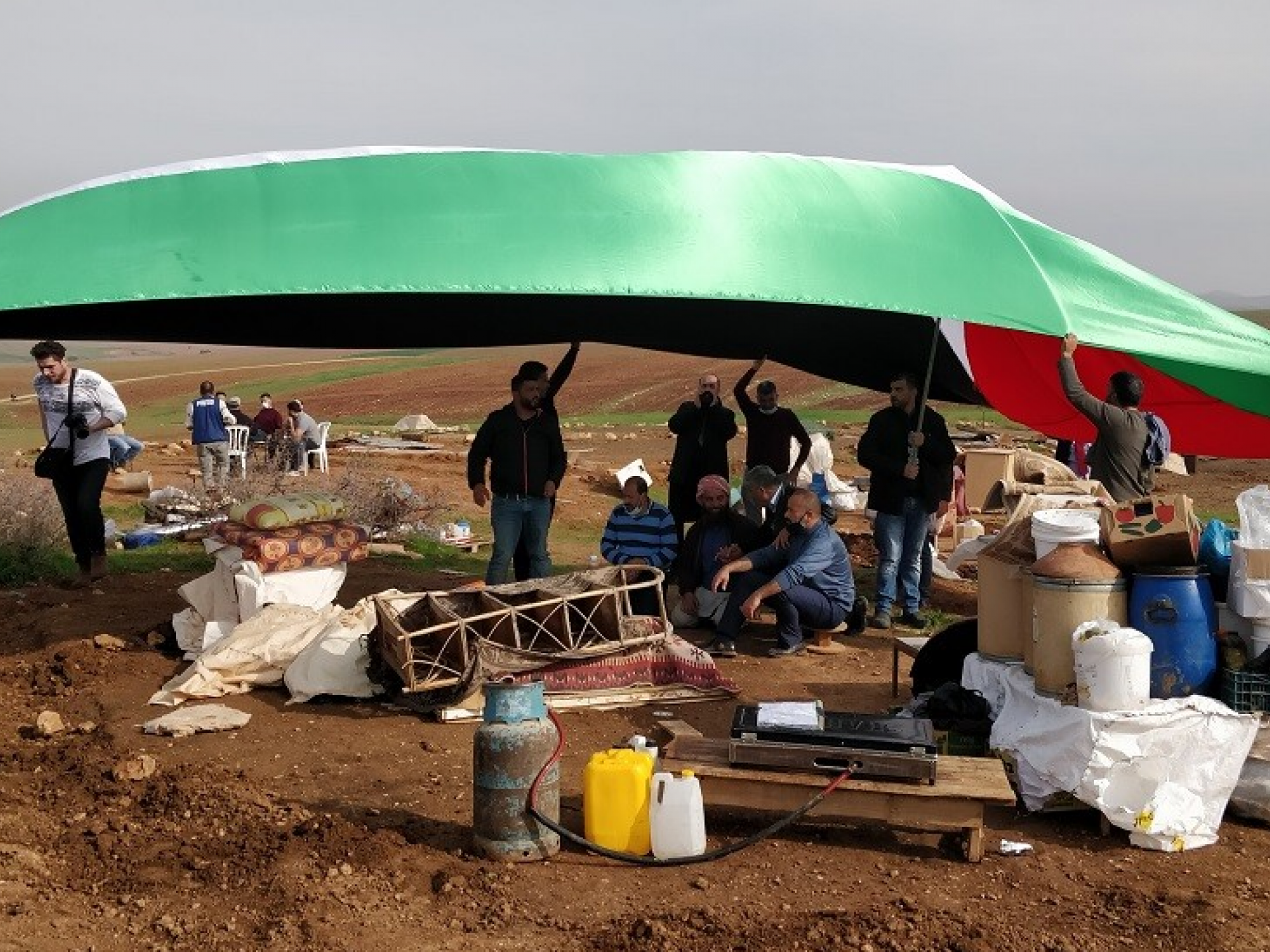Humsa: The IDF steals from the weak and helpless

We left at 08:15 in Dafna’s car for Fas’il in order to transport Maryam, the old, almost blind woman whose home had been demolished three times in recent months, to the hospital where she would receive an injection to preserve what was left of her sight.
At the entrance to Fas’il, a man standing beneath a tree on the side of the road waved to us. We stopped. His name is Ahmad. He immediately began telling us how a settler, apparently from the Mal’achei Hashalom (“Angels of Peace” – how ironic) outpost harasses his flock of sheep and herd of camels, chasing them from their pasture. He drove with us on a road branching west off the road to Fas’il, unpaved but easy to drive on. The road rose, descended, rose, descended. From afar we saw the settler’s cattle. Three men were with them, one of them on horseback. We weren’t able to reach the large herd.
On the way back to Fas’il we met another shepherd, also named Ahmad, looking like a Bedouin with a full moustache, wearing a gallabiyah and a belt with a large buckle. He also indicated the distant settler and said the man had also chased him off the grazing land. We asked both men whether they wanted escorts to protect them, but they were afraid. “For a day or two – but what will happen later?”
In Fas’il Wista we visited T. As always, she sat beneath the tree next to her house, her children running around. It’s always difficult for me to see her, seeming helpless, hopeless.
On our way back we met a third Ahmad, also a shepherd, riding his donkey. He also complained that the settler’s herd of cattle makes life very difficult for them, pushing them away from the good pasture. The settler, who comes from 15 km. away, told them the entire central Jordan Valley, from Ma’aleh Efrayim to Ouja, belongs to him, and they’re forbidden to graze there. The three Ahmad’s refused an offer of escort; fear of the settler is too great. But they asked us to speak to him. Last year we got to know him very well – talking won’t do any good.
Near the Na’aran settlement, to the south, I saw for the first time a flock right beside Highway 90, which is very dangerous for the animals. Could the settler from Mal’achei Hashalom have expelled this shepherd from the place he and his forefathers had grazed for decades…?
When we arrived at Maryam’s in Fas’il we learned the doctor doesn’t receive patients today. We arranged to take her this coming Thursday.
Humsa
We stopped the car in a muddy section of the road because it was getting stuck. We got a ride with Palestinians going to Humsa – activists and media people. A Palestinian vehicle came toward us, warning the driver the army was in Humsa, confiscating everything, including vehicles belonging to visitors.
Approximately one kilometer before reaching the first tents of Humsa there was a checkpoint of soldiers and Border Police who didn’t allow us to continue. We got out of the car, which drove away quickly. The activists, younger than we, began running up the hill to reach Humsa from another direction; the two of us trailed after them. At first the soldiers tired to stop us but understood they wouldn’t succeed because we were too spread out. After a strenuous uphill hike of two or three kilometers we heard distant shots and saw clouds of tear gas the soldiers fired at the activists. They didn’t retreat, but sat down linking arms to prevent being removed. When we arrived we saw a large army crane truck loading tenting material, frames and iron rods from tents that had been erected only a week ago by residents of Humsa and our activists after the previous demolition.
At a distance we also saw a truck which had confiscated – or, more accurately, stolen – water tanks from communities living farther away.
There were many Border Police, very many soldiers, led by a tall, bald major. I told him his photo already appears in my album. He grinned and asked whether I wanted to know his name. He’s Major Eli Malachi, who specializes in demolishing tents and sheepfolds in the Jordan Valley. You can find on the internet praise and thanks from the settlers in Binyamin for the substantial help he provides.
The Palestinian activists sang nationalist songs and unfurled a large flag over the rubble that had been the A’s family home. Fatima, the mother, stood on the side, clasping her hands, tears in her eyes. Amid the chaos around her she worried how they would spend the night without a home, without shelter. We embraced her, wished to find comforting words, but couldn’t. So we were silent with her.
After a long walk back we reached a new encampment that A’s family had erected outside the firing range, to avoid the army’s prohibition of construction in a “firing range,” but it didn’t help: the army also dismantled that encampment, loaded it on the truck and stole it.
The goal is to expel the residents of Humsa from the area, to a crowded region 15 kilometers away – forced relocation – transfer!




